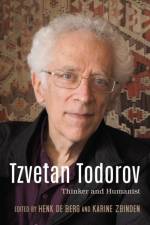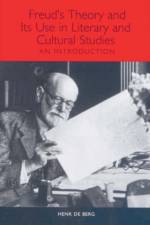av Henk de Berg
1 407
The first-ever comprehensive examination of Tzvetan Todorov's cultural theory and his place in European thought.Originally known for his groundbreaking work in literary studies, the Bulgarian-born French scholar Tzvetan Todorov (1939-2017) was one of the world's foremost cultural theorists. His interventions cover an astounding range of topics, from narratology to ethics, from painting to politics, and from the Enlightenment to current affairs. This collection of essays is the first-ever comprehensive examination of Todorov as a cultural critic. It offers in-depth discussions of the crucial elements of his thought since his historical and cultural turn in the early 1980s: his "e;marginal centricity"e; within the French intellectual field, and his relations with other French thinkers; his philosophical precursors and influences, notably Jean-Jacques Rousseau and Mikhail Bakhtin; his conception of the Enlightenment; his views on historiography, and on the possibility and limitations of passing historical judgments; his defense of a European identity; and his political philosophy, including his critique of totalitarianism, neoconservativism, and neoliberalism. Written by international experts in the fields of Enlightenment studies, literary and cultural studies, critical theory, and intellectual history, this volume offers both an introduction to one of the most important postwar European thinkers and discussions of some of the most hotly debated topics in cultural studies today. Contributors: Christine Baycroft, Henk de Berg, Maxime Goergen, Richard J. Golsan, Evgenia Ilieva, Eric B. Litwack, David McCallam, Carl Niekerk, Adam Piette, Robert Zaretsky, Karine Zbinden. HENK DEBERG is Professor of German at the University of Sheffield, UK; KARINE ZBINDEN is Teaching Associate in French Studies and Honorary Research Fellow at the Bakhtin Centre, also at the University of Sheffield.





